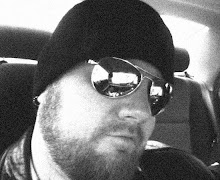Eyes Set to Kill - Reach
Break Silence Records (02/19/08)
Post-Hardcore / Alternative / Metal
"Don't mind me, I'm only dying."
—from "Darling"
Once a certain genre of music catches on, one of two things happens. Either a plethora of other acts jump on the bandwagon, creating a turgid monster that slowly consumes itself, or, whenever a new act comes out which could draw comparisons to said genre, they're immediately pigeonholed into the scene and suffer as a result.
Eyes Set to Kill could easily draw comparisons to early Atreyu, From Autumn to Ashes or Avenged Sevenfold—all bands that are still around making music. But, while the aforementioned trio has incorporated new dimensions to their sounds to stay fresh and relevant, or perhaps move into a mold more comfortable, thousands of others have taken their place. You know the bands. The ones with a fairly generic melodic metal musical approach, with dueling screamed and sung vocals and a couple of slow moments thrown in for good measure as a "surprise." It's tired. It's done. It's over.
From Autumn to Ashes, on its 2001 release Too Bad You're Beautiful, tried something at the end of the album. The band had Melanie Wills from One True Thing come in for a duet. It was a one-off (Wills joined the band again on The Fiction We Live but performing lead vocals alone).
The only point is, the seeds were planted with that one song. But nothing came of it... until now.
That's exactly what Eyes Set to Kill has for a sound. Imagine any of the above-mentioned bands but, instead of the hardcore vocals, the lead vocals are melodic and haunting.
Alexa Rodriguez does an astounding job of fronting this band, as her vocals seethe with emotion. They're intense without trying too hard, and are a startling juxtaposition to Brandon Anderson's guttural howls which accentuate the verses.
Rodriguez also handles guitar duty with Greg Kerwin. The rest of the band is rounded out by her sister Anissa on bass and drummer Caleb Clifton, as Anderson also plays the piano. Through this lineup, they've developed a great sound with a strong chemistry. The dual guitars offer a thick wall of riffs to pull everything together with hooks galore. The drumming is thunderous without being overpowering. The piano or synthesizer pops up at the most unexpected times for a welcome, added dimension of melody. The hidden gem of the group is the subtle, destructive bass work (as on "Violent Kiss"), which unfortunately, on very rare occasions, gets lost in the mix (a knock at the production rather than the band).
There's no screwing around on Reach, with the blistering metallic numbers ("Violent Kiss"), some epic tracks ("Young Blood Spills Tonight" and "Darling") with plenty of style shifts, and some catchy songs, too (the title track or "Song 2"). Nothing comes across as filler, so it seems foolish to spotlight any specific tracks.
The band already has a strong fan base, thanks to its do-it-yourself work ethic (working the rounds live and on MySpace as well as a strong-selling debut EP). Take a listen to Reach and add yourself to the list. This one's sure to be one of the best debuts from 2008.

